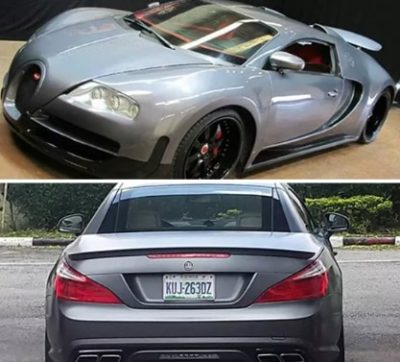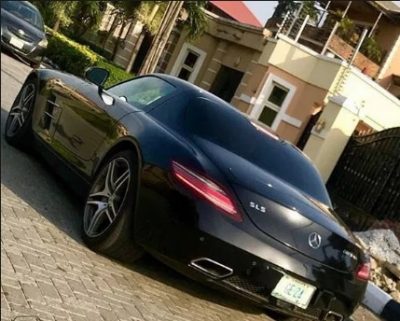The irony of luxury cars on Lagos streets

Lagos (Nigeria) is a very interesting place to live and drive in.
Driving on the streets in Lagos.
Even in the highbrow areas where we would find people who can afford luxury cars, we cannot run away from traffic, security risks and poor road infrastructure. Even on Sundays, when there is barely any traffic and streets are presumably peaceful, it is very rare to see a Rolls Royce or Bentley driving down without a police escort or two.
What an effort it takes to enjoy luxury, right?
Sports car aspiration.
To be honest, I have dreamt of one day acquiring my very own sports car, but with the state of our roads, those prospects are not very encouraging. I can barely count the number of areas where a person can actually enjoy a smooth ride in a sports car; and for majority of them, it would not take up to one or two minutes before approaching a ridiculously high speed breaker, roundabout or pothole. (Well, maybe with the exception of Third Mainland Bridge at early odd hours)

First McLaren encounter in Lagos.
I remember very clearly the first time I saw a Mercedes McLaren in Lagos; I was ecstatic watching the driver show off, speeding up and down the street until he struggled to drive over a mini-hill, which formed an elevation to the entrance of a house (This ramp was purpose-built for flood prevention within the premises during the notorious rainy season.
This is very common in many areas in Lagos). He had to make many awkward back and forth manoeuvres with extreme care in order to avoid scratching or potentially damaging the front and bottom of his car. That extra stress could possibly transform anyone’s dream of having a sports car in Lagos into a nightmare!
Other issues on Lagos roads.
In addition to the traffic situation, security and infrastructural issues, it is most disconcerting that on the same streets where we find some of these luxury cars in Lagos; e.g. Akin Adesola, Falomo Bridge and Admiralty Way, we see hawkers and beggars hustling in the heat or rain to get whatever little they can to get by their day. This really just brings the dire state of income inequality in our nation to a vivid reality, which sadly most of us have become accustomed to as our way of life.
From the roads to everyday living.
But really, what can we do about this situation?
I think that this is a question many of us need to ask ourselves sometimes. I do not dispute that getting by everyday for the average Nigerian is quite challenging; from traffic to little or no electricity supply to the high and increasing cost of living. IT IS TOUGH. So this makes it difficult to take a step back and observe those in our immediate environment who might even be in worse situations.

While the key responsible stakeholder for the welfare of our communities is the government, we cannot dispute that its capacity (or perceived capacity), as well as some of the apparent priorities may not be sufficient or well suited to the needs of the man on the streets.
Our role in social responsibility.
So this is where social responsibility of the citizens comes in. No matter how little a gesture we make to help others around us, it might just go a long way to change or save a life or two.
While we struggle to make ends meet and enjoy luxuries as much as we can within our means and despite some of the negative peculiarities of our environment, let’s learn to be our brothers’ keepers; and in the words of former President of the United States of America, “Ask not what your country can do for you – ask what you can do for your country.”
Written by Oyin Egbeyemi.
Oyin Egbeyemi is an engineer turned consultant- turned educationist, runner and writer.
(Pulse NG)

